Introduction
The twentieth century brought a lot of changes in the lives of young people. Organizations like 4-H and Future Farmers of America began to give boys and girls a place in the community outside of their homes. In these organizations, young people learned to contribute productively to their families and communities. The adult leaders of these organizations provided young people with a model of mature adulthood and guided the young people in their projects.
Young people’s organizations multiplied during the first half of the twentieth century as the nation experienced economic troubles and international threats. Clubs for youth addressed these issues directly and prepared boys and girls to become responsible adults with strong leadership and vocational skills.
In North Dakota, many young people joined school-centered clubs such as Young Citizens League or Future Farmers of America. Others joined after-school clubs such as 4-H. These three organizations were particularly important in the small towns and agricultural communities of North Dakota. Though young boys and girls had important roles on their parents’ farms, many parents felt that participation in youth groups was an important part of community life and a good way for children to develop character and life skills.
YCL
The Young Citizens League, or YCL, was introduced to North Dakota elementary schools in 1927. The idea was born in South Dakota in 1912 and became very popular in that state. The organization was supported by many of the county school superintendents. (See Document 1.)
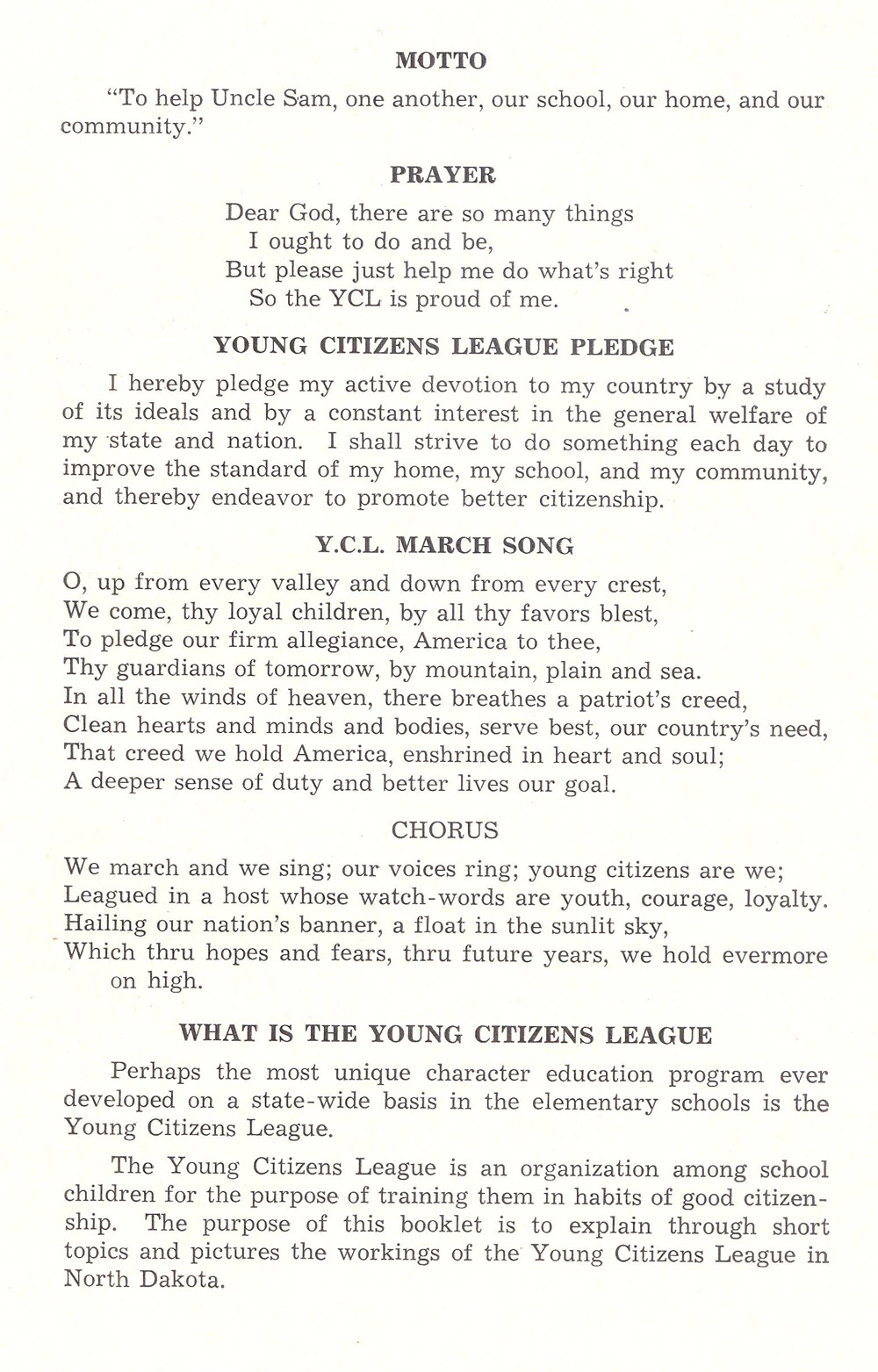
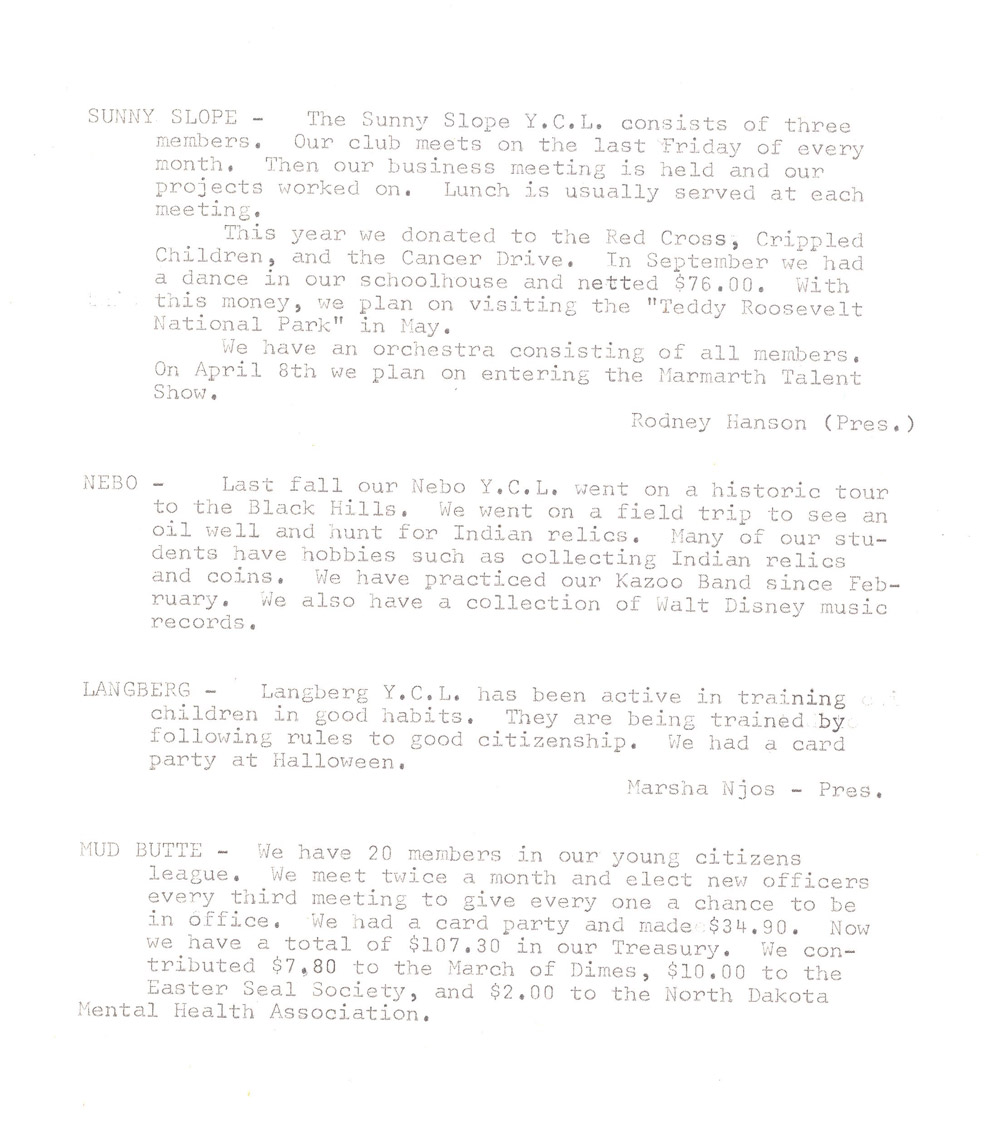
In some ways, YCL was similar to 4-H clubs. The students had projects and attended club meetings. (See Document 2.) However, YCL was closely associated with the schools, and teachers supervised chapter meetings. In addition, the emphasis in YCL was on citizenship while the emphasis in 4-H was agriculture and homemaking.
The purpose of YCL was to teach children citizenship and to encourage them to be engaged in the community. Each chapter elected officers frequently (as often as every two weeks) so that each child had a chance to participate in governance. The members practiced singing and pursued hobbies. Each year, the state organization suggested activities. Chapters reported on their events and projects at the county conventions. (See Document 3.)
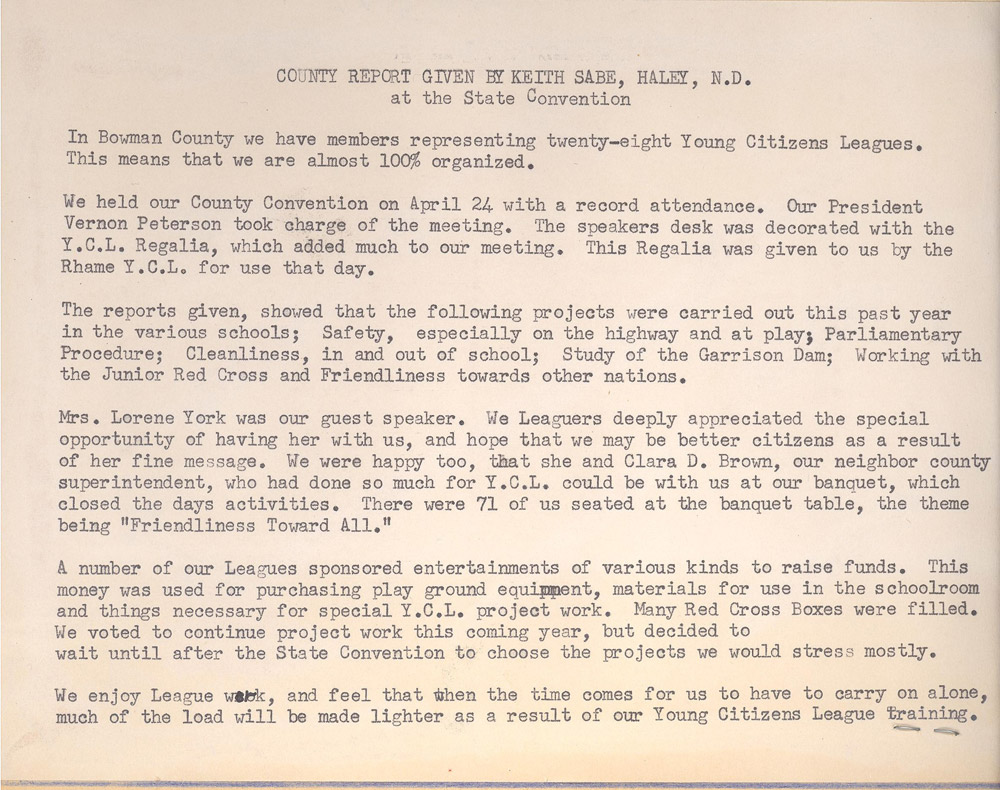
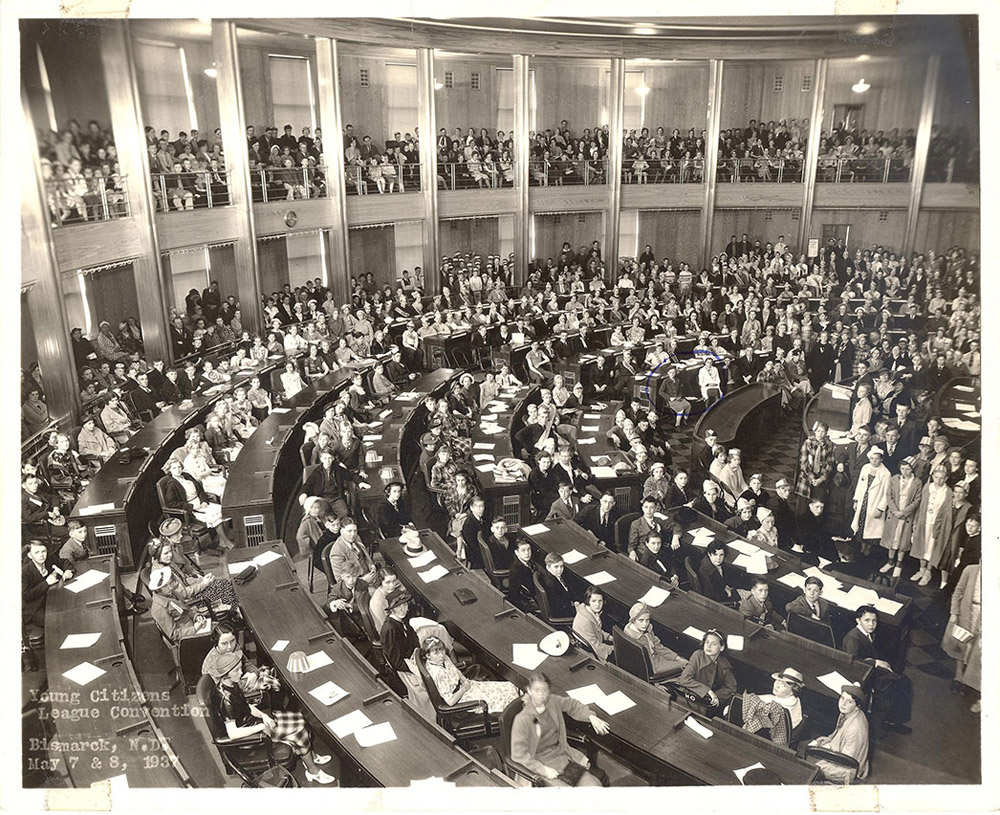
Beginning in 1930, the YCL held a state convention in Bismarck at the state Capitol. (See Image 1.) At the convention, the students displayed their work and elected state officers. (See Document 4.) They toured the Capitol, the governor’s mansion, the state prison, and Fort Abraham Lincoln State Park. Some chapters took the students on trips to the Peace Garden.
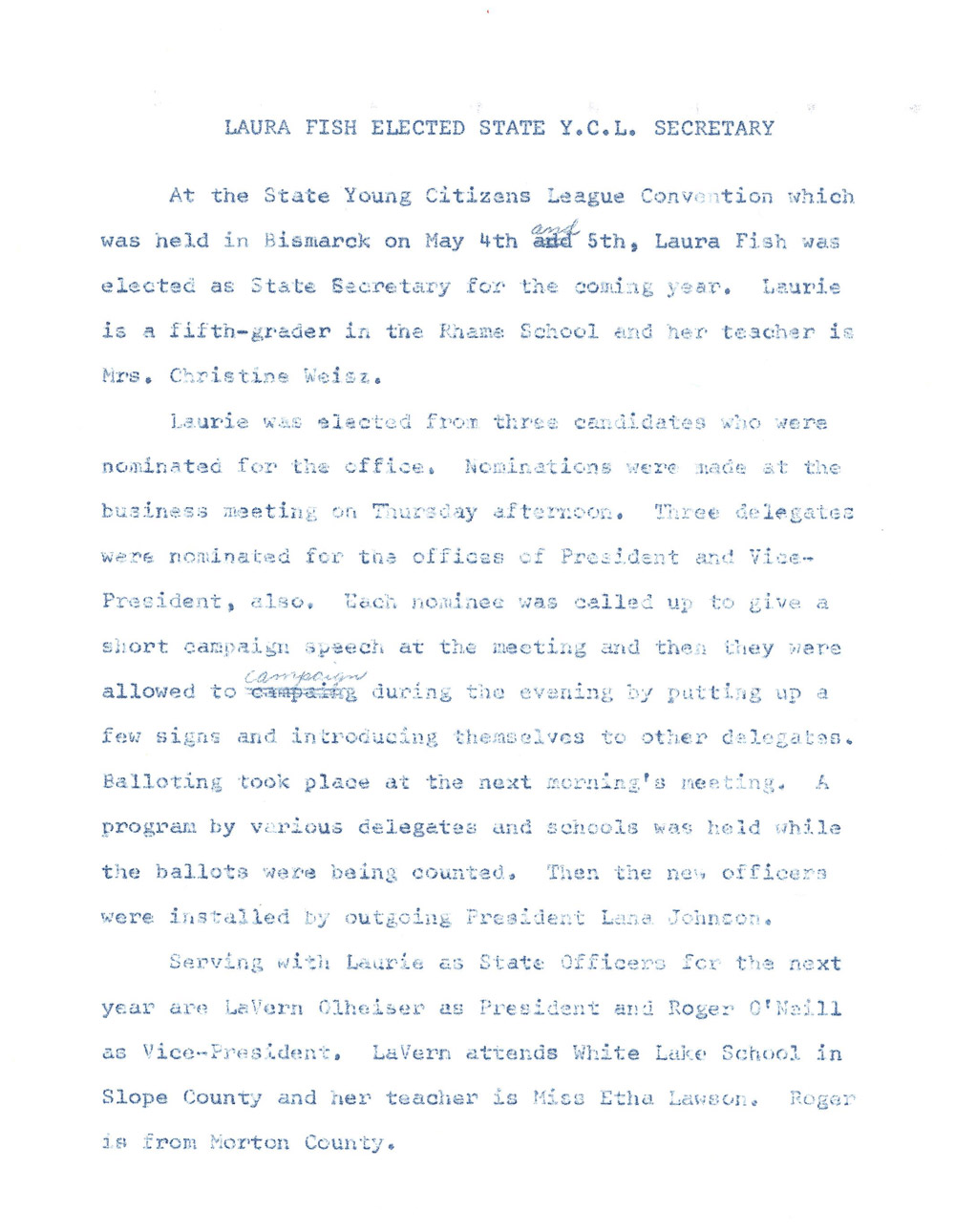
By 1950, there were 2,500 YCL chapters in North Dakota with a total enrollment of 35,000 students. State-sponsored activities included planting elm trees on school grounds, studying North Dakota’s birds and flowers, fund drives for charities such as the Junior Red Cross, and studying local and state history. These activities were designed to develop character, responsibility, and an understanding of government.
The YCL was an important youth organization in North Dakota and South Dakota. Children in other states also organized chapters, but the program in other states did not have the wide acceptance and influence of the North Dakota organization. Dr. W. M. Wemett of Valley City served as the president of the North Dakota YCL. In 1943, Dr. Wemett became national president of YCL, a position he held for many years.
School consolidation and the closing of small rural schools reduced the membership of YCL. Students in larger schools had more activities and sports to join. By 1980, few schools had YCL chapters. The final state convention was held in 1984.
Why is this important? Dr. Wemett brought the YCL to North Dakota during a period of national concern about the future of the United States. As a result of World War I, Americans viewed the world differently. The horrors of the war and the communist revolution in Russia offered a frightening vision of what might happen if we did not cherish democracy and teach our children the ways of a democratic nation. The Young Citizens League offered a defense of democracy as children learned more about how our government works.
The Young Citizens League benefitted not only the nation and the state, but also had a good influence on members. Many children who participated in YCL grew up to be responsible adults actively engaged in community affairs.


